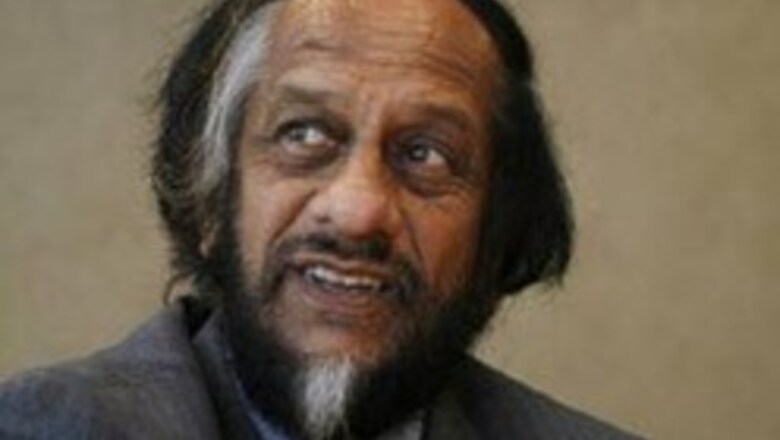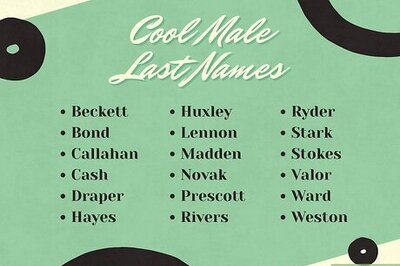
views
New Delhi: He was once denounced by Al Gore as the "let's drag our feet" candidate for the chair of the U.N.'s climate panel, but Rajendra Pachauri's achievements won recognition on Friday alongside Gore for the Nobel Peace Prize.
Indian scientist Pachauri chairs the United Nations Intergovernmental Panel on Climate Change (IPCC), which shared the Nobel prize with former U.S. Vice President Gore. Since his appointment, Pachauri, who is known for his diplomatic skills, has managed to forge a global consensus on one of the most debated issues in the world: climate change.
The IPCC made the strongest-ever link this year between mankind's activities and global warming, gaining widespread publicity around the world.
Pachauri said on Friday he was overwhelmed by the news. "I can't believe it, overwhelmed, stunned," Pachauri told reporters and co-workers after receiving the news on the phone at his office in New Delhi. "I feel privileged sharing it with someone as distinguished as him," he added, referring to Gore.
"It was not an easy job reaching a consensus on research by 2,500 scientists from more than 130 countries," said Nitin Desai, former UN Under-Secretary-General for economic and social affairs and an expert on climate change.
"His skills as a diplomat and a consensus builder are what sealed the deal," he said about the report which stated it was more than 90 percent likely that mankind's activities were the main cause of warming in the past 50 years.
A strong believer in the teachings of Mahatma Gandhi, the 67-year-old economist and engineer took over the job in 2002 amid controversy.
The United States had withdrawn support for British-born Robert Watson to gain a second term, because he was seen as too outspoken about the risks of climate change when President George W. Bush was vehemently stressing uncertainties.
At the time, Gore denounced Pachauri in The New York Times and said his "virulent anti-American statements" would undermine the IPCC's authority in the United States. But "Pachy" -- as he is known to his friends -- has defended his independence and surprised many over the years, going beyond his role as a scientist and verging on the political, to promote awareness of global warming and its impact on the world's poor.
PAGE_BREAK
In January, just before releasing the first installment of a UN report, he told Reuters that he hoped it would "shock people, governments into taking more serious action". The scientist often stresses the looming damage from climate change, especially to the poorest in Africa, Asia and Latin America or to people living in small low-lying islands whose homes might be washed away by rising seas, diplomats said.
Pachauri has also strongly argued that "dangerous" climate change may happen long before thresholds set by others, such as a 2 Celsius (3.6 Fahrenheit) temperature rise over pre-industrial levels set as a maximum by the European Union.
Born on August 20, 1940 in the scenic town of Nainital, he is a hard-core vegetarian, partly due to his religious beliefs as a Hindu and the impact meat production has on the climate. Married with two children, he also heads one of India's leading environmental think-tanks, The Energy and Resources Institute, which does research in areas from energy and the environment to biotechnology.
In 2001, Pachauri, who lists two doctorates on his business card, was awarded the Padma Bhushan, India's third highest civilian honour.
Last year, he was bestowed with the Officer of the Legion of Honour by the French government for his contribution to field of environment and sustainable development. He spends much of his time travelling and speaking on climate change at international fora and jokes he "lives at 30,000 feet".
At a Reuters summit in London on October 3 he said that the world might have to take even stricter measures than the toughest under consideration to safeguard the most vulnerable peoples.
Such statements are anathema to many governments, including the United States which says that the costs of implementing the Kyoto Protocol, the main UN plan for curbing climate change, are already too high. But Pachauri believes nothing is impossible. One of his favourite quotes: "Be the change you want to see."


















Comments
0 comment